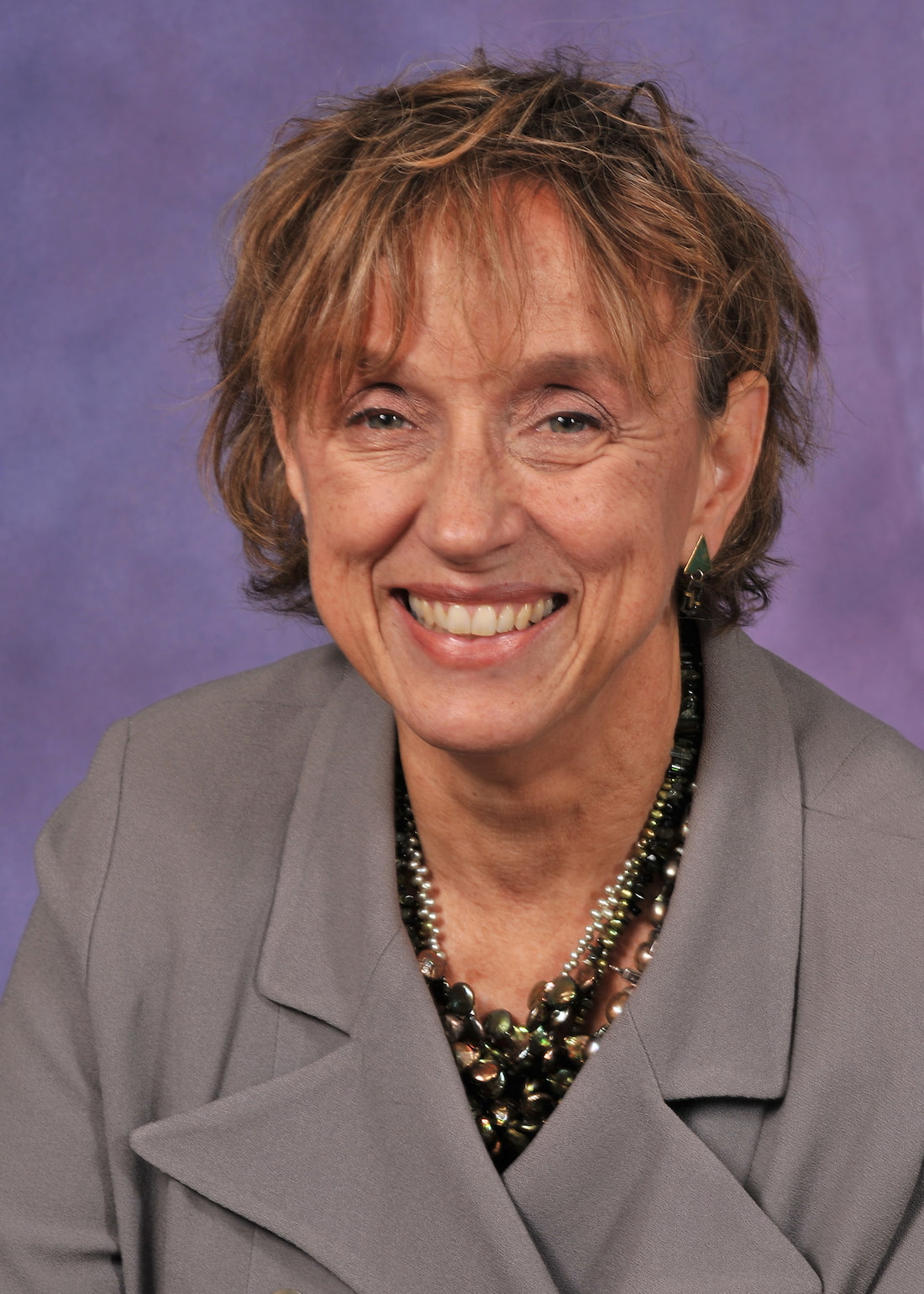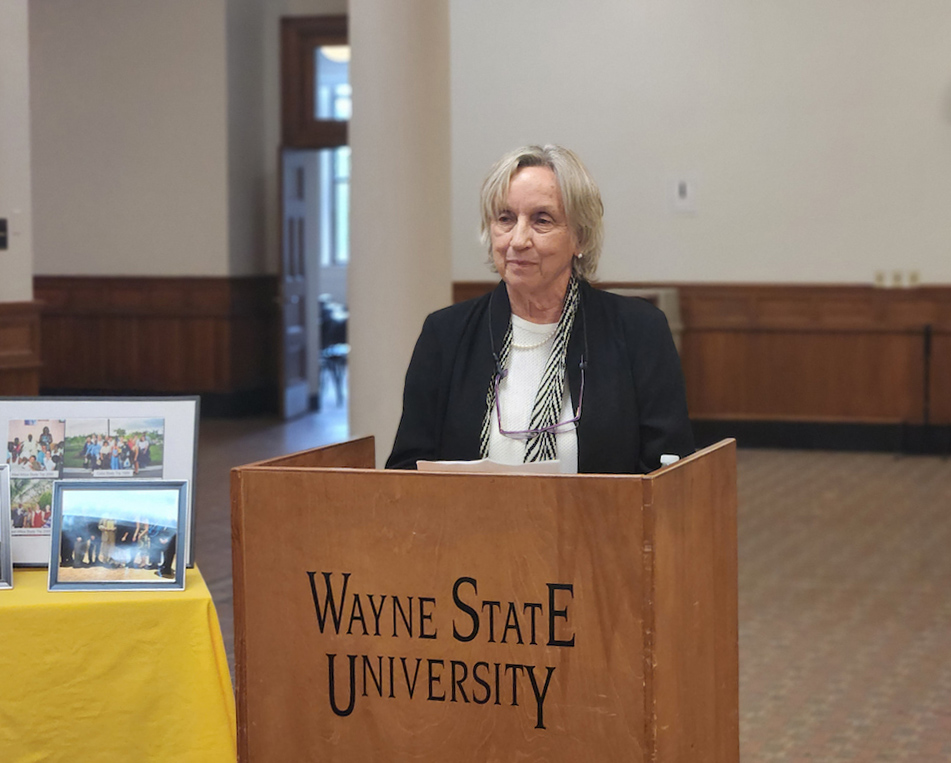Celebrating the legacy of Dr. Andrea Sankar: A distinguished career in medical anthropology
As the academic year draws to a close, we bid farewell to a remarkable scholar and mentor, Dr. Andrea Sankar, Wayne State University reflects on the profound impact she has made not only within the academic spheres but also in communities around the world.
 Distinguished Professor Emeritus Andrea Sankar has dedicated her career to understanding the intricate intersections of health, culture and society while remaining a beloved professor. Her academic career has been renowned, marked by numerous accolades, grants and impactful research projects.
Distinguished Professor Emeritus Andrea Sankar has dedicated her career to understanding the intricate intersections of health, culture and society while remaining a beloved professor. Her academic career has been renowned, marked by numerous accolades, grants and impactful research projects.
From Buddhist nunneries to AIDS epidemics: A transformative path
Dr. Sankar's beginnings in medical anthropology began with compelling research in a Buddhist nunnery in Hong Kong. Intrigued by the lives of single women navigating old age without familial support, she dove deep into understanding how individuals in societies lacking institutional frameworks for aging manage to cope.
But fate had more in store for Dr. Sankar. Her involvement in addressing the AIDS epidemic showcased the transformative power of anthropology in tackling pressing public health challenges. During her postdoctoral work at the University of California, San Francisco, the AIDS epidemic erupted. She found herself at the forefront of understanding this mysterious disease, which was then known as “GRID” (Gay-Related Immune Deficiencies).
Dr. Sankar’s qualitative research skills proved invaluable as she participated in the first case-control trial, unraveling the origins and transmission of AIDS. Through her anthropological lens, she illuminated critical aspects of the epidemic, bridging gaps in knowledge and compassion.
Changing perspectives: Anthropology for social justice
At the beginning of her academic career, it was her interest in social justice that led her to anthropology. The social justice movement in the 60s and 70s at the University of Michigan was run by proud graduate students in the anthropology department. This gave her the first seed of realizing anthropology leads to wider and greater social change.
Over the years, Dr. Sankar witnessed a shift in medical anthropology. While her training at the University of Michigan, initially didn’t emphasize engagement with social health issues, her tenure at UCSF transformed her perspective. She noted a significant shift towards greater engagement and recognition of anthropology's potential in addressing social disparities, especially in healthcare. Dr. Sankar championed this approach, recognizing anthropology’s potential to drive social change.
Memorable moments: From Detroit to Rwanda
Two poignant experiences stand out in Dr. Sankar’s career:
The Detroit AIDS Response: In collaboration with Reverend Renee McCoy, Dr. Sankar confronted the AIDS crisis head-on. Detroit’s mayor, Coleman Young, initially denied the presence of AIDS in the city, rejecting federal funding. Undeterred, Dr. Sankar and Reverend McCoy established an adult day daycare program for AIDS patients at the Full Truth and Unity church. Anthropology students cooked meals, played games and provided companionship to those rejected by their families. Yoga classes even found a place in this compassionate setting—a testament to the power of applied anthropology.
Rwanda: Secondary Prevention for Positives: Dr. Sankar worked alongside Dr. Mark Luborsky in Rwanda focusing on AIDS prevention. Their efforts included educating HIV-positive individuals on disclosing their status to sexual partners. By empowering individuals with knowledge, they aimed to reduce transmission and stigma. Their work exemplified anthropology’s role in shaping public health interventions.
From NIH grants to transforming research
 Dr. Sankar’s NIH grants were more than financial support—they were catalysts for change. In a groundbreaking study involving 12 cities, her research team noticed a pattern. When surveying individuals about antiretroviral doses, respondents often asked, “What do you mean by that?” The doctors and pharmaceutical companies left room for misinterpretation by patients and researchers based on dosing requirements and recommendations.
Dr. Sankar’s NIH grants were more than financial support—they were catalysts for change. In a groundbreaking study involving 12 cities, her research team noticed a pattern. When surveying individuals about antiretroviral doses, respondents often asked, “What do you mean by that?” The doctors and pharmaceutical companies left room for misinterpretation by patients and researchers based on dosing requirements and recommendations.
Dr. Sankar’s team bridged this gap by conducting in-depth qualitative interviews alongside surveys. They explored nuances, understood the context and discovered that the question needed refinement. Instead of asking how many doses were missed, they shifted to asking, “How many doses were taken?” This seemingly small adjustment revolutionized data collection across the United States, enhancing our understanding of medication delivery and helping proper dosing for people worldwide dealing with AIDS.
Dr. Sankar’s impact extended beyond research. Being named Michiganian of the Year was a testament to her unwavering commitment to social justice. Equally significant was her role in creating the integrated anthropology and social work Ph.D. degree (SWAN). This innovative program empowered students to combine anthropological theory, scholarship and methodology with social work expertise. With SWAN, graduates could advocate effectively, analyze policies and organize communities—a powerful fusion of important disciplines.
Dr. Sankar’s journey exemplifies how passion, persistence and purpose can transform not only individual lives but also entire fields.
Legacy and gratitude
Here at Wayne State University, we couldn’t be more grateful she arrived at the anthropology department in 1989 as a tenure-track assistant professor and later served as the department chair for 11 years. As Dr. Sankar steps into retirement after 35 years, we express our deepest gratitude for her unwavering dedication, intellectual curiosity and compassionate mentorship. Her legacy will continue to inspire generations of scholars, reminding us that anthropology is not just a discipline—it’s a lens through which we understand humanity.
Thank you, Dr. Sankar, for a legacy that inspires generations to come! May your retirement be as enriching as your career!